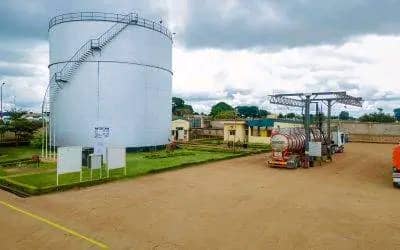
The Centre for Social Accountability and Transparency (CSAT) has called on President Lazarus Chakwera to take immediate and decisive action following alarming revelations of gross procedural violations in the procurement of fuel at the National Oil Company of Malawi (NOCMA).
CSAT has expressed deep concern that these violations appear to have been intentionally orchestrated to defraud the Malawian public.
Speaking to MIJ Online, CSAT Executive Director Willy Kambwandira emphasized the need for swift and resolute measures, urging President Chakwera to hold those responsible accountable.
He stressed that public officers implicated in the scandal must step aside to allow for an independent and transparent investigation into the matter.
“This is not just a case of procedural breaches; it points to a deliberate attempt to defraud the people of Malawi. We cannot allow such actions to go unchecked,” Kambwandira stated. “All public officers implicated must step aside to pave the way for a credible investigation.”
In addition to urging presidential action, Kambwandira called on Parliament to intervene in the ongoing scandal to ensure accountability and transparency. He stressed the need for legislators to oversee the process and ensure that those found guilty face the full force of the law.
“Parliament has a critical role to play in ensuring that this issue is thoroughly investigated and that there is transparency in how public resources are managed,” Kambwandira said. “We need accountability, not only from NOCMA but from all institutions involved in this scandal.”
Kambwandira also appealed to the Anti-Corruption Bureau (ACB) to conduct a comprehensive investigation into the allegations, which involve corruption, fraud, theft, and abuse of power. He emphasized that the Malawian public deserves answers and that those responsible for these actions must be brought to justice.
“The allegations we are dealing with point to systemic corruption and a complete disregard for proper procedures. We urge the ACB to treat this case with the seriousness it deserves, as it involves not only the loss of public funds but also the potential sabotage of the country’s fuel supply,” Kambwandira added.
The fuel procurement scandal at NOCMA has raised widespread concerns across Malawi, with citizens, civil society organizations, and political leaders demanding accountability.
NOCMA, which is responsible for ensuring the country’s strategic fuel reserves, plays a critical role in maintaining national fuel security. However, the recent revelations of procedural violations in its procurement processes have cast doubt on its transparency and integrity.
Reports indicate that the procurement irregularities may have led to inflated fuel prices and the misallocation of public funds. There are fears that these violations could have long-term consequences for Malawi’s economy, especially given the crucial role of fuel in national development.
CSAT’s call for action reflects growing frustrations among the Malawian public, who continue to grapple with the consequences of corruption and mismanagement of public resources. The organization has been at the forefront of advocating for accountability and transparency in government institutions, and this latest scandal underscores the need for reform within NOCMA and other public agencies.
As the nation awaits further developments, Kambwandira and CSAT remain firm in their demand for justice. They have urged the Malawian government, Parliament, and the ACB to ensure that no stone is left unturned in investigating and resolving the fuel procurement scandal.
“We cannot afford to be complacent in the face of such gross violations of public trust,” Kambwandira concluded. “The Malawian people deserve to know the truth, and those responsible must be held accountable.”
The Malawian public now looks to President Chakwera’s administration to take decisive action and restore confidence in the government’s commitment to fighting corruption and ensuring the responsible management of public resources.














